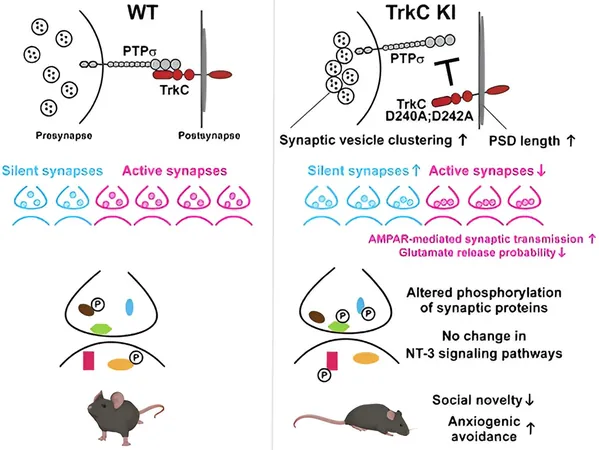
Rwanda Battles Resurgence of Marburg Virus as WHO Issues Travel Advisory
2024-10-11
Author: Nur
Rwanda Battles Resurgence of Marburg Virus as WHO Issues Travel Advisory
In a concerning turn of events, Rwanda’s Ministry of Health has confirmed three new cases of the Marburg virus along with an additional fatality, marking a total of 61 reported cases since the outbreak began, with 14 deaths. This update follows a hopeful two-day pause without new infections.
The cluster of cases has been concentrated within a hospital in Kigali, the country's capital, and among those in contact with the patients. Currently, 31 individuals are isolated and receiving treatment, while 16 have successfully recovered from the virus.
In response to the outbreak, a vaccination campaign utilizing an experimental Marburg vaccine developed by the Sabin Vaccine Institute commenced last weekend; so far, 501 high-risk individuals have been vaccinated. This proactive measure aims to curb the impact of the deadly virus, which is transmitted through direct contact with infected fluids.
The World Health Organization (WHO) has weighed in on the situation, acknowledging that most cases stem from three districts in Kigali. In its preliminary assessment, the WHO confirmed that all recent cases are linked to two hospital clusters and emphasized the significance of monitoring over 700 identified contacts. Notably, a key contact who traveled to Germany remains under observation, while another contact who visited Belgium has completed the 21-day monitoring period without incident.
However, the international response has been marked by travel advisories. The WHO has argued that travel restrictions may not be effective in controlling the spread of Marburg and could hinder countries from sharing critical data swiftly. The United States recently revised its travel advisory for Rwanda, now advising against all nonessential travel, alongside announcing health screenings for travelers arriving from Rwanda starting October 14.
While Rwanda grapples with the Marburg virus, COVID-19 activity in the United States is seemingly on a decline. The Centers for Disease Control and Prevention (CDC) reports a national test positivity rate of 7.7%, with hospitalization and death rates trending downward. The CDC also noted significant reductions in SARS-CoV-2 detections through wastewater monitoring.
In light of fluctuating public health challenges, the FDA has finalized a framework to bolster federal collaboration on evaluating the impact of antibacterial and antifungal pesticides used in agriculture, progressing towards a One Health approach to safeguard human and ecological health.
Lastly, an encouraging study from Denmark reveals that electronic nudges significantly boost influenza vaccination rates among individuals with chronic diseases, suggesting scalable public health strategies to improve health outcomes. This comes amid ongoing global challenges as countries like Pakistan, Angola, Nigeria, and South Sudan report new polio cases, indicating that vigilance in public health is imperative as multiple diseases threaten communities worldwide.
This outbreak serves as a reminder of the precarious balance that countries must maintain in protecting public health while navigating the complex dynamics of global disease transmission. Stay tuned for more updates as Rwanda and the international community work tirelessly in response to these pressing health issues.




 Brasil (PT)
Brasil (PT)
 Canada (EN)
Canada (EN)
 Chile (ES)
Chile (ES)
 España (ES)
España (ES)
 France (FR)
France (FR)
 Hong Kong (EN)
Hong Kong (EN)
 Italia (IT)
Italia (IT)
 日本 (JA)
日本 (JA)
 Magyarország (HU)
Magyarország (HU)
 Norge (NO)
Norge (NO)
 Polska (PL)
Polska (PL)
 Schweiz (DE)
Schweiz (DE)
 Singapore (EN)
Singapore (EN)
 Sverige (SV)
Sverige (SV)
 Suomi (FI)
Suomi (FI)
 Türkiye (TR)
Türkiye (TR)